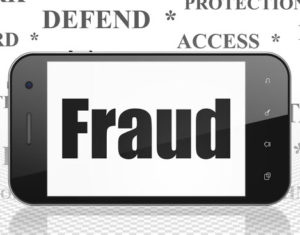Fraud in Virginia Part 1
Fraud refers to many different kinds of criminal wrongdoing. The laws against fraud in Virginia cover many different kinds of fraud, though some are more common than others. It is important to understand different kinds of fraud and how Virginia law defines them.
Forgery
Forgery is defined as “The creation of a false written document or alteration of a genuine one, with the intent to defraud.” There are many different kinds of documents and instruments that have the potential to be forged; for example, government records about property ownership or even an “antique” document purported to be from a notable historical person. Financial documents can also be forged. Virginia law around forgery includes many different sections depending on the kind of forging (for example, there is a section on forging public records, a section on forging coins or bank notes, and several other sections). The penalties for forgery depend on the kind of forgery and the wrongful actions that the forger engaged in. The above named sections are classified as Class 4 felonies and are punishable by two to ten years in prison and a fine of up to $100,000. Attempting to use the forgeries is a Class 5 felony punishable by up to 10 years in prison and up to a $2,500 fine.
False Pretenses
False pretense is actually a kind of larceny or theft. However, false pretense is similar to fraud in that it involves lying or misrepresentation. False pretense is when someone uses a trick or other falsehoods to convince someone to sign over property. Since false pretenses are a kind of larceny, the charge is based on whether it is petit larceny (the stolen property has a value of $200 or less) or grand larceny (over $200).
If someone uses false pretenses to get a signature that could be used for forgery, it is a Class 4 felony punishable by a fine of up to $100,000 and two to ten years in prison.
Check Fraud (Bad Checks)
In this context, check fraud refers to someone writing a check on an account that they know does not have sufficient money to cover the amount of the check. Bad checks are also treated as a kind of larceny and less than $200 is petit larceny while over $200 is grand larceny. If there are many smaller checks written over a period and the checks total over $200 within a 90-day period, then that is also charged as grand larceny. Keep in mind that the person writing the checks must know that he or she does not have enough money in the account to cover them, which is very different than accidentally overdrawing your account.
Let Us Help You Today
If you are charged with fraud in Northern Virginia, it is crucial that you talk to a knowledgeable fraud defense attorney to learn your rights and come up with the best strategy to defend you against the fraud charges. Our experienced fraud defense attorneys at Simms Showers, LLP in Leesburg, Virginia can help to zealously defend you against any kind of fraud charges.

